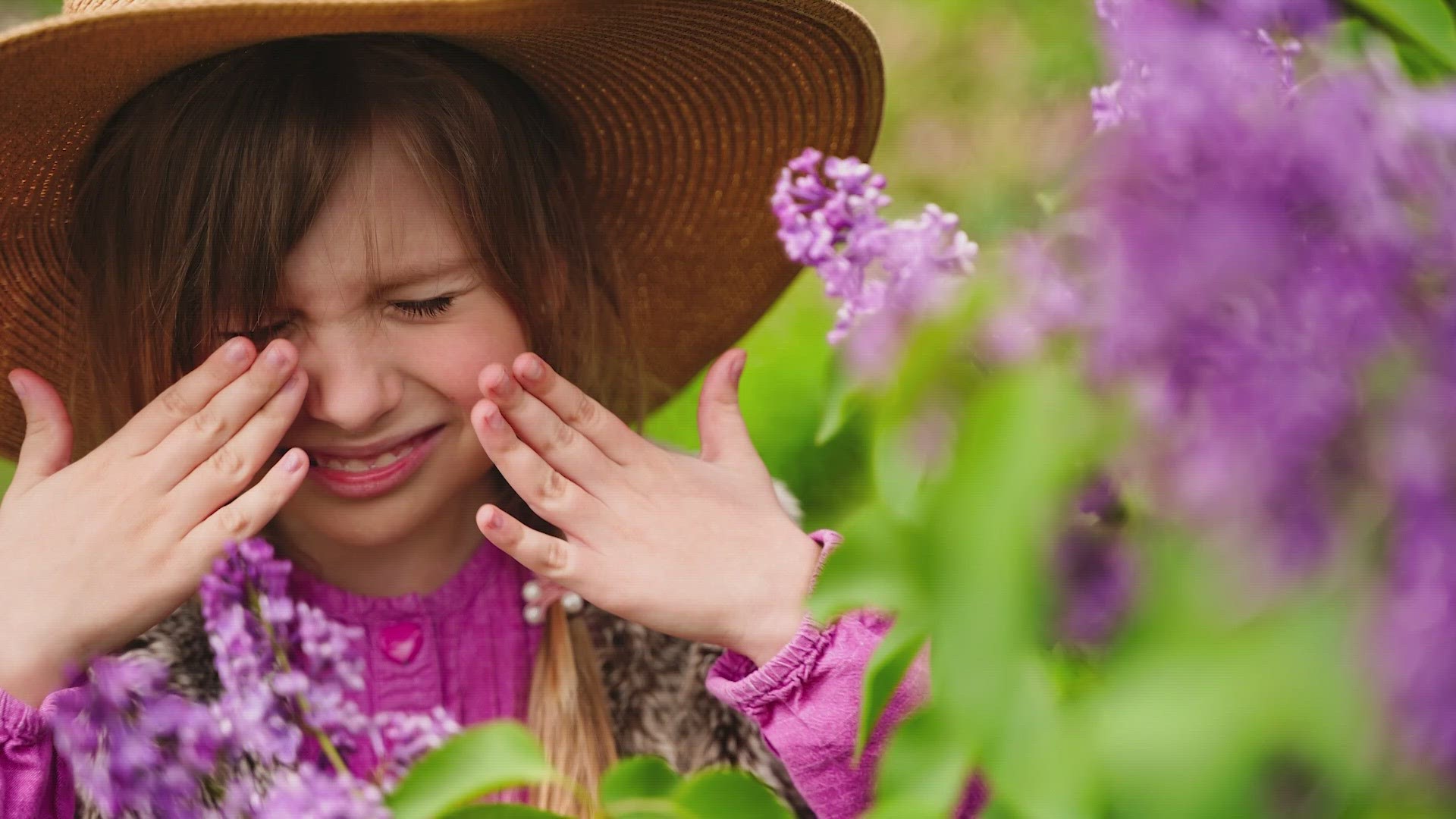DALLAS — North Texas is the place to be! Well, if you don't suffer from allergies. Just ask Dr. Sharon Wiener of Pediatric Offices at Willow Bend.
"It's absolutely horrible in North Texas." Wiener says.
So horrible in fact, the Asthma and Allergy Foundation of America ranked the metroplex as the No. 2 “Allergy Capital” of America. If you're fairly new here and feeling totally fine now... Don't count yourself lucky just yet
"Most of the time it does take nine months to a year for the body's system to build up to where they respond to the local allergens,” Wiener says. “And, so, what happens is we have a family that moves here and they're perfectly fine, and after about nine to twelve months all of a sudden their child is getting ear infections, sinus infections. They come in and they say 'we don't know what's going on, my child is sick all the time.'"
Unfortunately, it’s a never-ending cycle of pollen attacks around here. Nurse practitioner Shelby Walker listed all the allergens we see here in North Texas. It truly never stops.
Spring?
“Trees,” Walker says.
Summer?
"Grasses and weeds"
Fall?
"Weeds and trees"
Winter?
"Specific trees like Oak, Mountain Cedar and sometimes ragweed."
Walker says one of the contributing factors to the bad allergies are males. That's right, fellas. Even guys of other species are causing problems.
"The male trees are the trees that produce the pollen and then release the pollen,” says Walker. “Landscapers tend to plant male dominant trees, or plants in general."
Ok... so then why don't we just plant more females?
"Mostly because of the mess,” says Walker. “They do drop seeds and fruit so that causes more upkeep that needs to happen with the landscape crew."
And of course, the climate and weather play a big role in how we feel, too.
"Definitely more patients, more severity, greater severity, and that is due to the global changes in the climate," says Wiener. "The no-freezing seasons are longer. More of the pollens are around for the entire year."
Let’s talk about what she just said. At DFW, 70% of winters since 1990 have had a below normal number of freezes. The average first freeze is Nov. 22 and the average last is March 12. That's a 110-day span. But we've seen that freezing window get smaller and smaller over the decades.
Listen, I know this all sounds like terrible news, but there is hope.
Dallas native and long-time allergy sufferer Jim Pierce told us his experience with immunotherapy has been life changing.
“So, every day I would take my over-the-counter allergy medication until I went through this process and took these shots,” said Pierce. “Then all of that just vanished and I feel great now!”
"With a compliant course, meaning they come in and do the full course of immunotherapy, there's a very high rate of success," says Wiener.
It's something you'll want to talk to your doctor about so you can spend every season smiling instead of sneezing, whistling instead of wheezing, and sightseeing instead of suffering.
Because at the end of the day, there is no escaping the allergens in North Texas.

